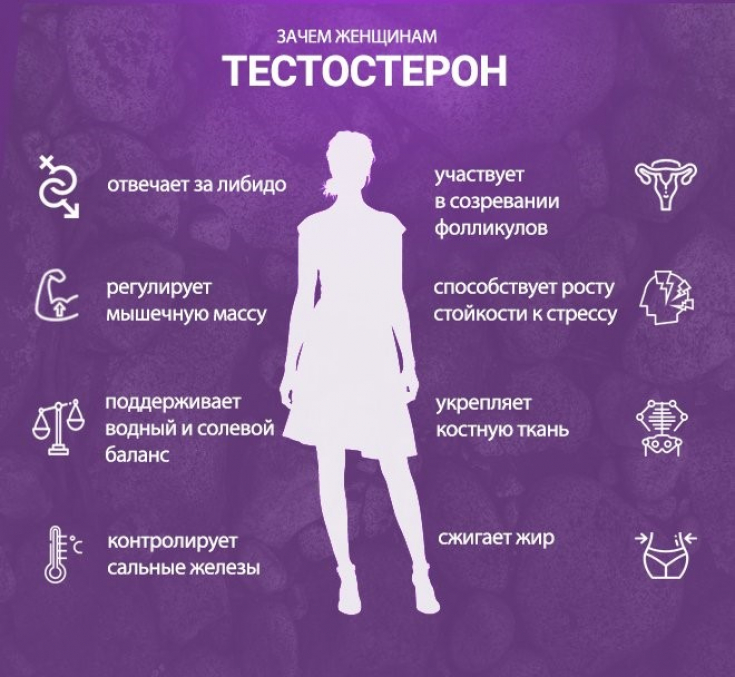Testosterone – It is a steroid hormone belonging to the group of androgens. Despite the fact that this hormone is considered “male” by the people, in fact it plays an important role in the regulation of many processes and the female body. Testosterone in women is synthesized in the adrenal glands and ovaries. In this regard, diseases of the female reproductive system can be accompanied not only by a decrease in the synthesis of female sex hormones, but also by testosterone deficiency.
For information on why the level of testosterone in a woman's body can change, what consequences this leads to, and how to quickly and effectively restore the normal level of the hormone, read on estet-portal.com in this article.
- Testosterone – steroid hormone of the male reproductive system Change in testosterone levels: main causes
- The consequences of increasing testosterone levels
- Medicated correction of
- testosterone levels Testosterone – steroid hormone of the male reproductive system
Follow us on Instagramsystem.
Change in testosterone levels: main causes
Testosterone in women affects the strength of bones, the development of muscle mass. Normal testosterone levels contribute to a sense of well-being and increased energy. Testosterone plays a huge role in sex drive. It is this hormone that increasesthe sensitivity of erogenous zones
in women.Menopausal skin: when hormones show up on the face

High levels of stress can also cause testosterone levels to drop.
Elevated testosterone levels in women are usually caused by an underlying condition, such as
congenital adrenal hyperplasia or polycystic ovary syndrome.
Testosterone levels:
• consequences of increased testosterone levels;• low testosterone levels: normal or pathological;• drug correction of
Consequences of increasing testosterone levels
The clinical manifestations of high testosterone levels in women include:• acne;
• hypertrichosis;
• Irregular menstruation;• reduced sex drive;
• reduction in breast size.
Increased levels of androgens in women can cause weight gain and infertility. Treatment depends on the underlying cause of the increase in hormone levels.
Read also:
The Secret to Longevity: Controlling Thyroid Hormones
Most often, oral contraceptives, corticosteroids, as well as other drugs intended to correct concomitant changes are prescribed in complex therapy.
 .
.
One of the problems with testosterone replacement therapy is that the most readily available testosterone preparations, which are intended for men, contain too high concentrations of testosterone for the female body.
Read also:Estrogens on the alert: female sex hormones against aging
Thus, the appointment of testosterone replacement therapy – this is a serious decision, making which, you should weigh all the pros and cons of this treatment method. More useful information on our channel in
Youtube:







Add a comment